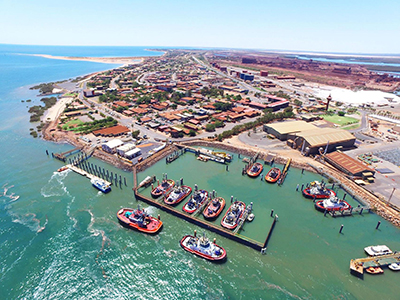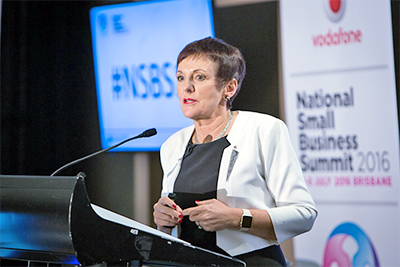THE Australian Retailers Association (ARA) said January 2018 trade figures released today by the Australian Bureau of Statistics (ABS) represent a timid post-Christmas trade, with a 2.09 percent total growth year-on-year.
ARA executive director Russell Zimmerman said the ARA and Roy Morgan post-Christmas sales predictions were close to the actual post-Christmas trade results released today by the ABS. 
"The ARA and Roy Morgan release the only professionally researched retail predictions annually, and we are hopeful our post-Christmas forecast is in-line with the actual December and January trade results," Mr Zimmerman said.
"We predicted a 2.9 percent increase in post-Christmas trade, forecasting Australians to spend almost $17.9 billion from December 26, 2017 to January 15, 2018. As this forecast is over a three-week period the ARA and Roy Morgan will analyse these results against the December and January trade results to see if our predictions are on track.”
The strongest retail category in January was Other Retailing (3.22%), which was primarily driven by online retail which grew 3.23 percent year-on-year.
"The ARA and Roy Morgan predicted online retail to grow the strongest of all categories in post-Christmas trading, forecasting a 4.02 percent increase in post-Christmas trade,” Mr Zimmerman said.
"With the constant increase in online sales, we believe online retail will only grow even bigger as we continue to progress through the new year."
Unfortunately, Mr Zimmerman said, Newspapers & Books (-5.08%), Furniture (-2.43%), Footwear & Personal Accessories (-2.32%), Takeaway food (-0.95%) and Department Stores (-0.94%) all received negative figures in January.
"Although footwear is down at this point, we are hoping to see a pick-up in February’s retail figures as the back-to-school period was later than normal this year," Mr Zimmerman said.
"We believe furniture sales are lower than usual, partly due to the drop in the housing market and widespread pricing pressures for furniture retailers in Australia."
Across the country, Victoria (3.85%), South Australia (2.52%) and Tasmania (2.17%), showed the strongest year-on-year growth of all the states. While both New South Wales (1.84%) and Queensland (1.79%) remained steady, the Australian Capital Territory (0.44%) received minimal growth, and Western Australia (-0.27%) and the Northern Territory (-1.57%) received negative figures in January.
"With retail figures continuing to underperform, landlords need to understand how escalating rental costs affect an already struggling industry," Mr Zimmerman said.
The ARA claims current rental increases are unsustainable with rental prices increasing 5 percent on average, therefore retailers are looking for landlords to meet them halfway and shoulder some of the burden.
"The retail industry is struggling, and without retail landlords won’t survive, so we need support now," Mr Zimmerman said.
Monthly Retail Growth (December 2017– January 2018 seasonally adjusted)
Food retailing (0.01%), Clothing, footwear and personal accessory retailing (-0.69%), Cafés, restaurants and takeaway food services (0.05%), Department stores (-0.57%), Other retailing (1.00%), and Household goods retailing (0.05%).
Queensland (0.42%), Western Australia (0.32%), Victoria (0.26%), Tasmania (0.31%), Australian Capital Territory (0.04%), South Australia (-0.61%), New South Wales (-0.22%) and Northern Territory (-0.50%).
Total sales (0.07%).
Year-on-Year Retail Growth (January 2017 – January 2018 seasonally adjusted)
Food retailing (2.56%), Clothing, footwear and personal accessory retailing (0.43%), Cafés, restaurants and takeaway food services (2.75%), Department stores (-0.94%), Other retailing (3.22%), and Household goods retailing (1.38%).
Victoria (3.85%), South Australia (2.52%), Tasmania (2.17%), New South Wales (1.84%), Queensland (1.79%), Australian Capital Territory (0.44%), Western Australia (-0.27%) and Northern Territory (-1.57%).
Total sales (2.09%).
About the Australian Retailers Association:
Founded in 1903, the Australian Retailers Association (ARA) is Australia’s largest retail association, representing the country’s $310 billion sector, which employs more than 1.2 million people. As Australia’s leading retail peak body industry, the ARA is a strong pro-active advocate for Australian retail and works to ensure retail success by informing, protecting, advocating, educating and saving money for its 7,500 independent and national retail members throughout Australia. For more information, visit www.retail.org.au or call 1300 368 041.
ends








